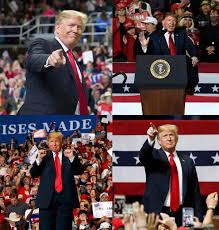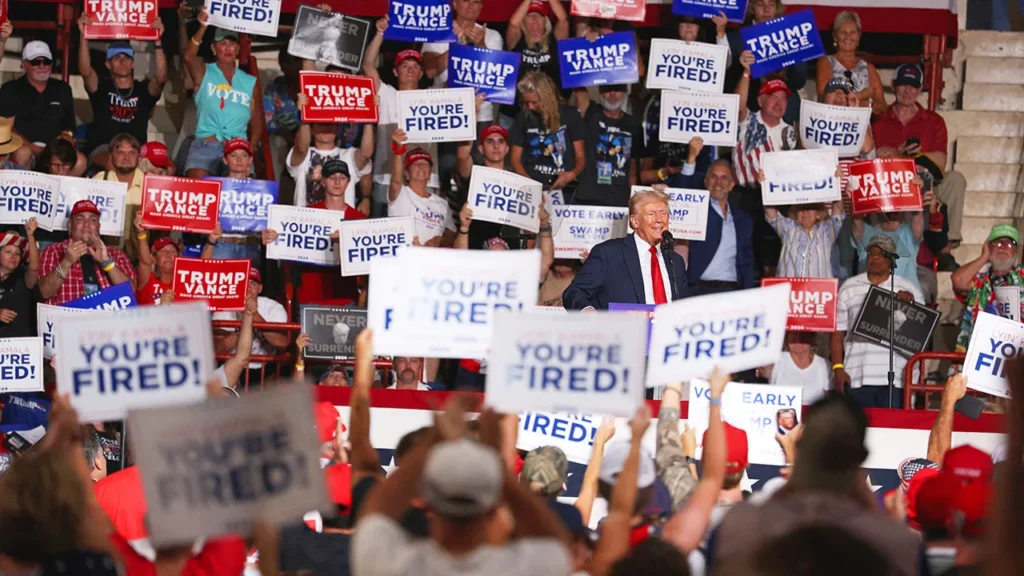Washington — Very nearly four years after previous President Donald Trump went out, Tim Dunn, Kelcy Warren and other Texas oil tycoons are siphoning a great many dollars into his mission at a time climate change represents an existential emergency to their industry.
In their sights are Majority rule strategies, for example, the $7,500 tax break for electric vehicles, harder discharges principles on vehicles and trucks, and motivators for mortgage holders to change from to gas machines to electric models, all of which Trump has gone after with the commitment of a new “Drill, Child, Drill” ethos pointed toward expanding oil and gas creation in Texas and somewhere else.
Yet, how far Trump would go in his journey to fix the perfect energy strategies of the Biden organization is a question mark in the midst of the political real factors of Washington, where numerous conservative lawmakers’ home states are the recipients of Biden’s spotless energy spending.
In August, 18 Conservative House individuals sent a letter to House Speaker Mike Johnson, R-La., cautioning that canceling the spotless energy tax breaks made under the Expansion Decrease Act would “subvert private ventures and stop improvement that is now continuous.”
“For each one conservative that marked that letter there’s one more a few that by and large concurred with the recommendation yet didn’t feel they were in that frame of mind to sign it,” said Scott Segal, a Washington energy lawyer. “It’s becoming more clear there is more grounded conservative help for proceeded with clean energy motivations than was first thought.”
In Texas, for example, more than $150 billion in projects have been reported under the Biden organization, to a great extent to exploit charge motivations and government financing made by the Expansion Decrease Act and the Bipartisan Foundation Regulation. Projects incorporate a $120 million battery plant in La Porte and a $6 billion supportable flying fuel plant close to Odessa.
More financing is reasonable coming, as oil and gas organizations cooperate with innovation organizations to foster clean hydrogen projects in and around Houston through a government hydrogen center program worth up to $1.2 billion for Texas, as well as multibillion-dollar carbon


catch and capacity projects being created along the Bay Coast by any semblance of Exxon Mobil and Chevron.
What a second Trump organization would do on those expense impetuses is muddled, however various previous Trump authorities have been requiring their end.
In a report by the Legacy Establishment this year, named Venture 2025, top energy and climate authorities from the main Trump organization summoned for doing with clean energy sponsorships, including the carbon catch tax reduction driving tasks along the Bay Coast, and keeping the Energy Office from giving credits to foster new advances.
All things considered, they required a re-visitation of Trump’s “energy predominance” strategies, with more coal mining and seaward penetrating, as well as taking out the implementation division of the Natural Insurance Organization, which they blamed for “quarrel driven authorization” and “misrepresenting the condition of our current circumstance for the most part and the genuine damages in all actuality owing to environmental change.”
Diana Furchtgott Roth, a representative colleague transportation secretary under Trump who currently works at Legacy, said she anticipated that Trump should get rid of new outflows principles constraining vehicle makers to move towards EVs.
“There will be no reason for building every one of these EV and battery plants,” she said. “The red states — and blue states so far as that is concerned — they won’t have any desire to have white elephants on their hands.”
The Trump lobby didn’t answer demands for input, however Trump has stood up against Venture 2025, saying he assumed no part in its creation and contradicting the creators’ require a cross country restriction on early termination.
Furthermore, he has now and again moved away from his previous resistance to EVs, saying recently after Tesla Chief Elon Musk offered him a support, “I’m for electric vehicles. I must be, on the grounds that Elon supported me firmly. So I must choose between limited options.”
After fourteen days, he said he was thinking about finishing the EV tax reduction, telling Reuters, “tax breaks and expense impetuses are not commonly something excellent.”
That is a conspicuous difference from VP Kamala Harris, who has looked to string the needle on energy and environment strategy, telling CNN in a meeting Thursday that she wouldn’t uphold a deep earth drilling boycott while likewise encouraging to proceed with the perfect energy strategies of the Biden organization.
“She’s displayed all through her vocation shes going to take on large oil and polluters,” said Tiernan Sittenfeld, senior VP for government undertakings at the Association for Protection Electors. “Were Trump reappointed, it would be no limits. It would be wrecking to all the headway we’ve made through the IRA and the framework regulation.”
Were Trump to attempt to fix Biden’s spotless energy programs, getting support in Congress could demonstrate a difficult recommendation. With the new invasion of intensity waves, out of control fires, vicious rainstorms and flooding — of which Texas has been at the focal point — Americans are developing progressively vigilant on environment.
In a Yale College survey toward the end of last year, 72% of Americans said they were stressed over an Earth-wide temperature boost. Furthermore, conservatives in Congress are more dynamic on environment and clean energy than they were previously, with a gathering that incorporates Rep. Dan Crenshaw, R-Houston, requiring a “moderate way to deal with environment” that incorporates subsidizing for innovations, for example, carbon catch.
“There’s political real factors impacting everything here,” said Segal, the energy lawyer. “I don’t predict an ocean change in energy motivators. If conservatives somehow happened to attempt to yank the bathmat out of capital serious activities, that is what might be compared to increasing government rates on capital ventures. That doesn’t have an exceptionally conservative ring to it.”

